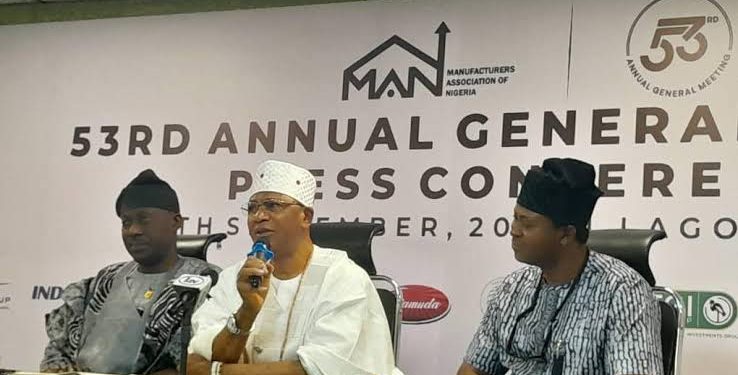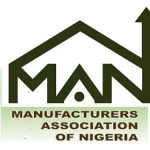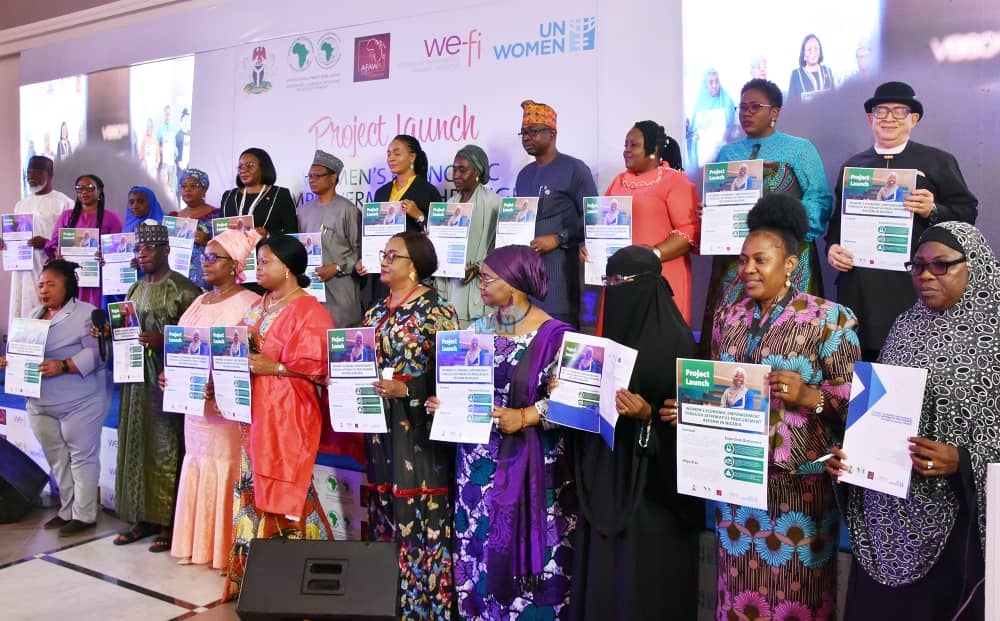The Manufacturers Association of Nigeria and the United Nations Industrial Development Organisation have renewed calls for stronger policy implementation to reinforce Nigeria’s industrial base and support the “Nigeria First” agenda, stressing that promoting locally made goods must go beyond government promises.
Speaking at the Made-in-Nigeria Exhibition during MAN’s 53rd Annual General Meeting in Lagos, the President of MAN said Nigeria must institutionalise policies that give priority to local manufacturers in both public procurement and private sector spending.
The “Nigeria First” policy, introduced under President Bola Tinubu’s Renewed Hope agenda, is designed to accelerate industrialisation by increasing demand for local products. It builds on previous executive orders that promote indigenous production and technological capacity.
According to him, the goal is not to isolate Nigeria from global trade but to strengthen domestic industries that create jobs and foster innovation. He insisted that policy enforcement is crucial, warning that without consequences for non-compliance, manufacturers will continue to face setbacks. He also proposed the creation of an annual “Proudly Nigeria Day” to deepen national support for locally made products.
However, he noted that local producers continue to face major challenges, including rising energy costs, poor logistics, insecurity and limited access to long-term finance. He called for urgent institutional support and a more enabling environment for industries to thrive.
In his keynote remarks, the UNIDO Representative for Nigeria and ECOWAS described the “Nigeria First” agenda as a strategic economic shift that must be backed by coordinated action across all sectors. He emphasised that patronage of Nigerian-made goods should be supported by clear policies that allow local businesses to scale and compete.
He cited global examples such as Japan, South Korea and China, where industrial policies were used to strengthen domestic demand and build globally competitive industries. UNIDO, he said, remains committed to supporting Nigeria in areas such as SME development, digital transformation and industrial parks.
He highlighted four key areas critical to industrial competitiveness – stable energy supply, affordable financing, technology and skills development, and improved market access, especially through the African Continental Free Trade Area.
Both MAN and UNIDO reiterated that a strong manufacturing base is vital for sustainable development and urged the Federal Government to turn the “Nigeria First” policy into concrete action. They warned that without firm implementation, Nigeria risks deepening its dependence on imports at the expense of local industries.
MAN has consistently pressed the government to enforce local content policies, lower interest rates, expand industrial infrastructure and improve credit access, especially for MSMEs, to ensure Nigerian manufacturers can compete both within Africa and globally.










